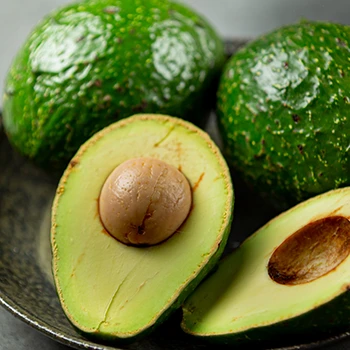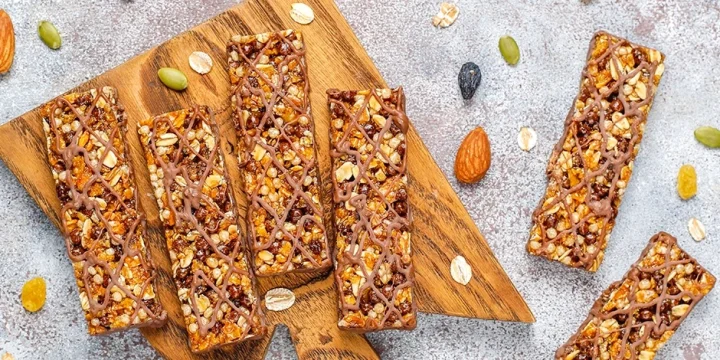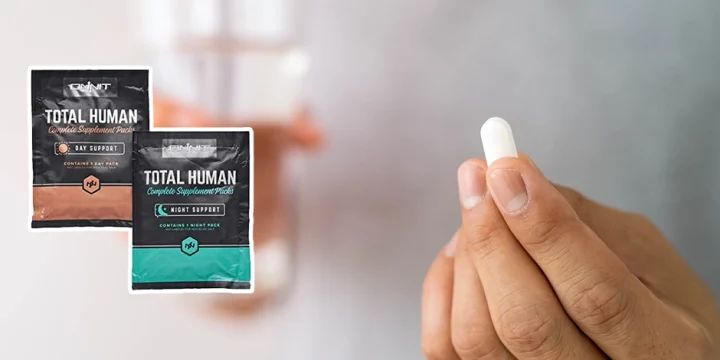Part of my job as a fitness trainer is designing diet plans for my clients, and the ones I come across online are usually rich in fruits and veg, but the single fruit that always occurs, no matter weight gain or weight loss diet, is the avocado.
I know their nutritional value is pretty high, but I wanted to figure out why they’re included in almost every weight-loss diet and what the science says about their fat-burning possibilities.
So I went over countless studies and enlisted our dietitian for help to find the answer.
Quick Summary
- Avocado consumption supports weight loss due to its high-fat content and fiber, helping to reduce calorie intake and increase feelings of fullness.
- Avocados are labeled as superfoods since they are nutrition-packed fruits with vitamins, minerals, fibers, and mostly monounsaturated fat.
- According to the US Department of Agriculture, 100 grams of avocado has 8.5 grams of carbs, most of which come from fiber (6.7 grams).
- I found that incorporating avocados into my meals not only aids in weight management but also contributes to my overall health, including better metabolism and reduced chances of heart issues.
How Could Avocado Help in Fat Loss?

Yes, avocado could help in weight loss since it's the fruit packed with satiating high-calorie content and good amounts of essential and healthy substances.
Hunger and Weight Management
According to a study in the National Library of Medicine, with a high-fat composition and thus a high-calorie count, fortified with dietary fiber, avocado can help you feel full longer and lessen calorie intake during the day [1].
Participants in one study published in Nutrition Journal who ate half a fresh avocado in one study recorded a 40% decreased desire to eat for hours afterward [2].
Fiber is associated with weight loss and reduced blood sugar spikes, plus we know from studies on ketogenic diets that this combination of high-fat and high-fiber is powerfully satiating, which not only makes you less likely to overeat later in the day but also turns on your ability to burn your body's own fat for fuel."
- Jessica Marcus, MS, RD, Health Coach at Parsley Health
A survey from 2008 also showed that avocado consumption is associated with a better diet and nutrient intake, which lowers the risk of metabolic syndrome, a condition where your energy metabolism doesn’t function properly, leading to many metabolic diseases like diabetes [3].
I've personally experienced how avocados can help curb hunger and manage weight. I was amazed to find that my desire to snack and overeat decreased significantly after consuming avocado.

Fat-Burning Effects

The main reason avocado oil can aid in fat loss may be their high levels of healthy monounsaturated fats that are burned at a higher rate than other fat types and could trigger the body to burn more calories after eating [4].
One spoonful of avocado oil contains about 10 grams of monounsaturated fats, making it almost identical to extra virgin olive oil.
According to a study in Wiley Online Library, avocados are very high in monounsaturated oleic fatty acid, which is also associated with abdominal fat reduction [5].
A Penn State study from 2013 showed that people who consumed about three tablespoons of high-oleic acid daily lowered their belly fat by 1.6 percent compared to those who used a flax/safflower oil blend high in polyunsaturated fat [6].
Another nutrition examination survey from 2021 showed that female participants who ate avocado daily for 12 weeks reduced visceral fat, indicating a change in fat distribution [7].
Nutrition Facts
This fruit is an impressive source of nutrients (macros and micros). Half an avocado (100 grams) contains about 160 calories packed with antioxidants, healthy fats, minerals, vitamins, and fiber.
Most calories come from fats (14.7 on the mentioned portion), primarily monounsaturated fat - a healthy and desirable type.
The carbohydrates, on the contrary, are present in low amounts, with 100 grams of avocado providing approximately 8.5 grams of carbs, most of which come from fiber (6.7 grams) [8].
However, avocados contain only 2 grams of protein, so this fruit isn't considered a high-protein food.
This serving contains a good amount of vitamins K, B3, B9, C, and E and minerals like potassium, magnesium, and copper.
Related article: Eating Rice and Beans Helps with Weight Loss?
Avocado in Different Diets
Its unique combination of nutrients and healthy fats makes it suitable for various dietary preferences, including keto, vegan, and more.
Keto Diet and Avocado
The ketogenic diet, or keto diet, is a low-carb, high-fat diet designed to promote ketosis, a metabolic state where the body burns fat for energy.
Avocado is a natural fit for this diet due to its high content of healthy fats, particularly monounsaturated fats. These fats not only provide a satisfying source of energy but also align with the keto principle of minimizing carbohydrate intake.
Avocado's net carb content is relatively low, making it an excellent choice for keto-friendly recipes.
Vegan Diet and Avocado
Avocados offer plant-based fats, vitamins, and minerals that are sometimes lacking in vegan diets. They are particularly rich in vitamin K, folate, vitamin E, and potassium, which can help meet nutritional needs in the absence of animal-derived foods.
In addition to their nutritional value, avocados also provide a creamy texture that can be used in vegan desserts, dressings, and sauces.
Mediterranean Diet and Avocado
While not traditionally associated with Mediterranean cuisine, avocados can be a valuable addition due to their monounsaturated fats and fiber.
Incorporating avocados into a Mediterranean diet can enhance its heart-healthy qualities.
The monounsaturated fats in avocados are known to support cardiovascular health by reducing inflammation and improving cholesterol levels, a principle at the core of the Mediterranean diet.
What Other Benefits Does It Bring?

Eating avocado lowers the risk of bad cholesterol development, glucose intolerance, heart disease, and blood pressure issues.
A diet high in oleic acid (monounsaturated fat) causes significantly higher physical activity and post-meal metabolism than a diet rich in saturated fat [9].
Avocado's mentioned monounsaturated fat content may also play an essential role in lowering elevated low-density lipoprotein (LDL), known as the 'bad' cholesterol [10].
Avocados can also help prevent weight gain through their nutritional content. Avocados are high in healthy fats, but relatively low in saturated fats, which are known to contribute to weight gain when consumed in excess.
Avocados can support your weight loss goals and help you maintain a balanced diet by replacing saturated fats.
Finally, avocados are high in fat-soluble phytosterols (plant compounds structurally related to cholesterol) and have 20 times more of them than other fruits.
According to a PubMed study, it's believed these compounds have beneficial effects on heart health [11].
My client says that by including avocados in his diet, he lowered my risk of developing bad cholesterol, glucose intolerance, heart disease, and blood pressure issues.
FAQs
How Many Avocados a Day Should I Eat to Lose Weight?
You should eat approximately one-half to one whole avocado a day to lose weight, assuming your intake of other healthy fat sources is appropriate. To lose body fat, you should combine your daily intake of avocado fats with olive oil, nuts, and seeds.
Can I Eat an Avocado on a Low-Fat Diet?
Yes, you can eat avocado on a low-fat diet since it contains low levels of saturated fat. Avocado is rich in healthy fats; therefore, it doesn't conflict with basic low-fat diet principles - avoiding unhealthy fat and cholesterol.
What Is The Best Time to Eat Avocado for Weight Loss?
The best time to eat avocado is breakfast since research showed that overweight adults who consumed this fruit for breakfast improved blood flow, after-meal blood sugar, and blood-fat levels.
However, taking it for dinner also has its benefits, considering it contains minerals helpful for relaxation like magnesium and high doses of potassium.
Do Avocados Help You Lose Belly Fat?
Yes, avocados can help you lose belly fat. They are packed full of healthy fats that can make you feel full for longer to avoid snacking. And they also have a direct effect on boosting the fat-burning effect of your metabolism.
Is Avocado Oil Good for Weight Loss?
Yes, avocado oil is good for weight loss due to its rich content of monounsaturated fat, and studies have shown that an increase in this type of fat intake is directly linked to a reduction in belly fat.
References:
- https://www.ncbi.nlm.nih.gov/pmc/articles/PMC6567160/
- https://nutritionj.biomedcentral.com/articles/10.1186/1475-2891-12-155
- https://nutritionj.biomedcentral.com/articles/10.1186/1475-2891-12-1
- https://www.ncbi.nlm.nih.gov/pmc/articles/PMC6140086/
- https://onlinelibrary.wiley.com/doi/full/10.1002/oby.21584
- https://www.sciencedaily.com/releases/2013/03/130329125110.htm
- https://academic.oup.com/jn/article/151/9/2513/6311819
- https://fdc.nal.usda.gov/fdc-app.html#/food-details/171705/nutrients
- https://academic.oup.com/ajcn/article/82/2/320/4862942
- https://www.ahajournals.org/doi/full/10.1161/JAHA.114.001355
- https://pubmed.ncbi.nlm.nih.gov/23638933/
About The Author
You May Also Like






